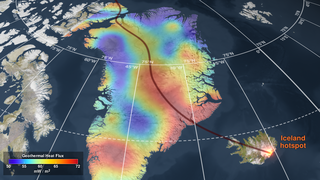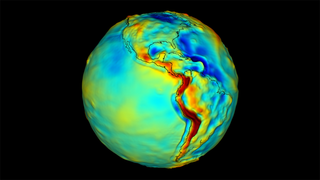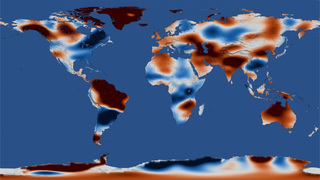Earth
ID: 10901
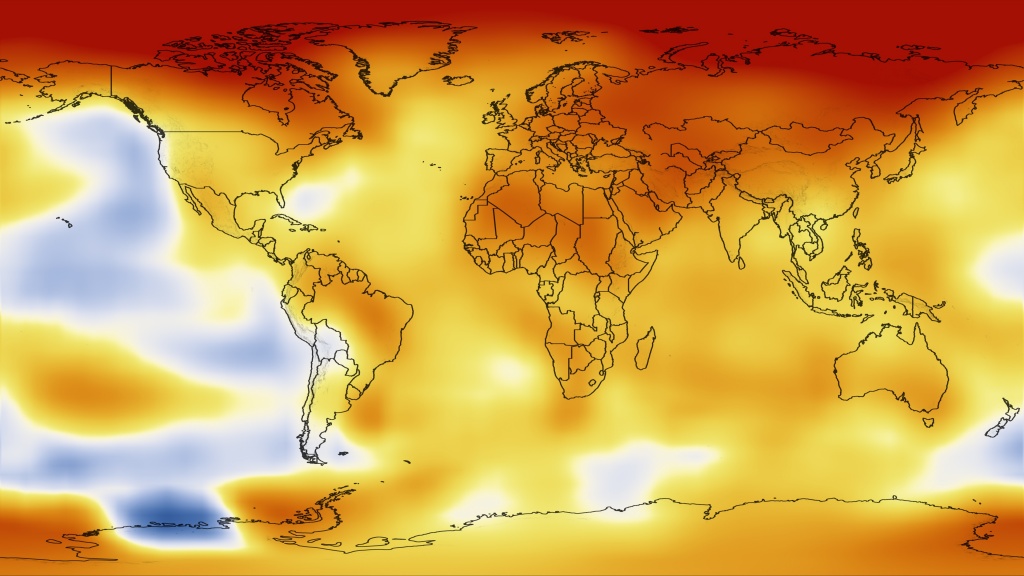
Even with the complexities of climate change, scientists still take the planet's pulse with a basic benchmark measurement—temperature. The world has experienced nine of the 10 warmest years on record since 2000. And in 2011, the ninth warmest year since 1880, the average temperature was nearly a full degree warmer (0.92 Fahrenheit) than the 1951-1980 average, which is used as a baseline for comparison. Scientists at NASA's Goddard Institute for Space Studies compute Earth's long-term temperature trend by analyzing readings from thousands of ground-based weather stations and sea surface temperature data from ships and satellites. Earth's long-term warming trend remains driven primarily by an unprecedented increase in carbon dioxide levels in the atmosphere, created largely by increased fossil fuel burning for generating electricity and powering cars. That rate of increase has overwhelmed the prior, slow pace of atmospheric changes between geologic eras. Watch in the visualization below how temperatures across the globe have crept upward since the late 19th century.
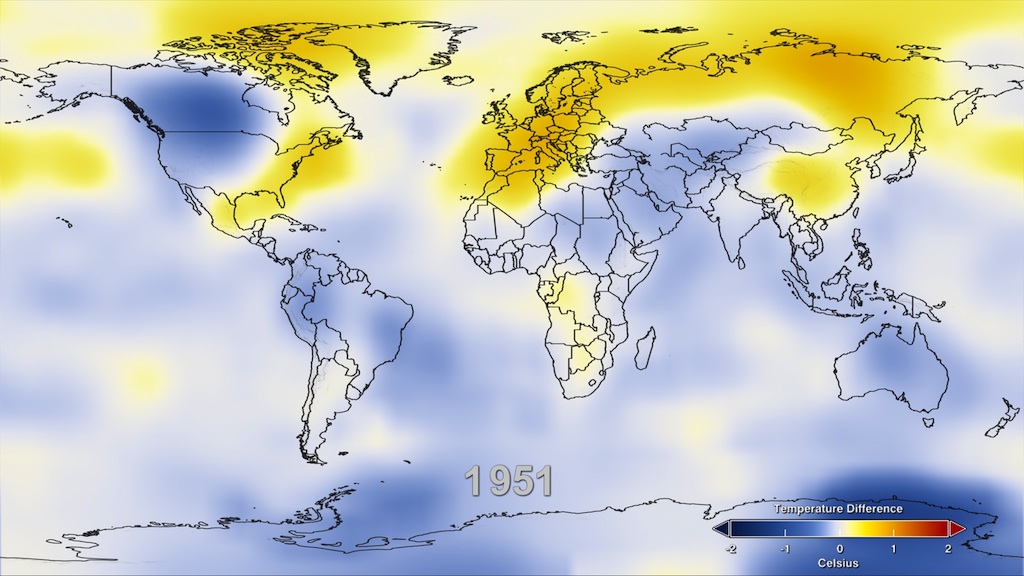
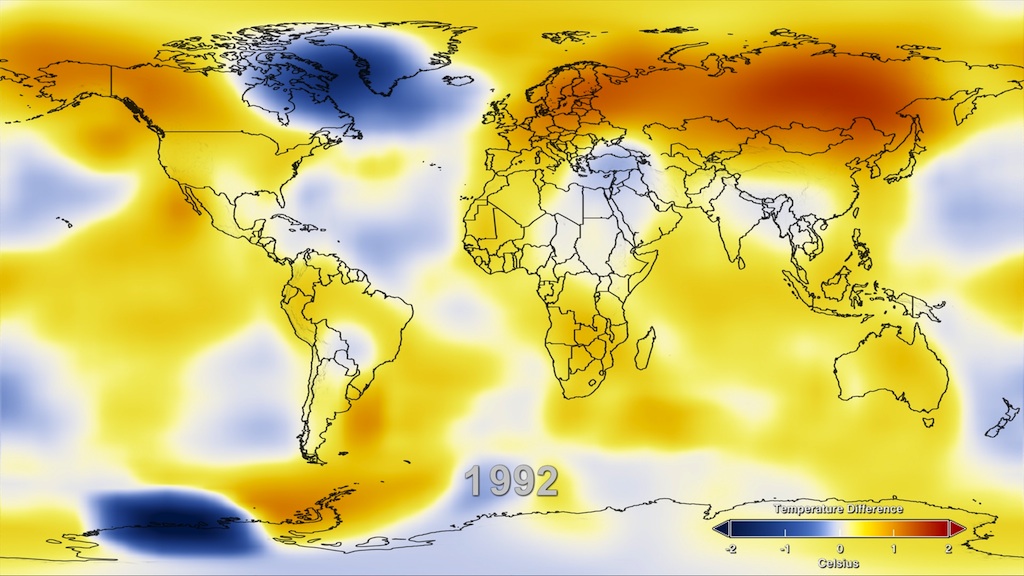
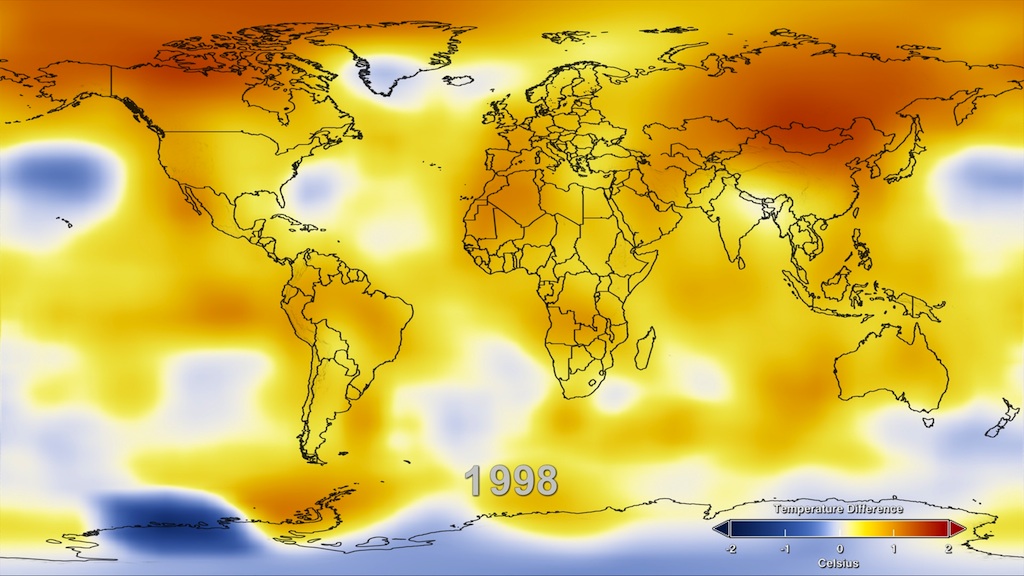
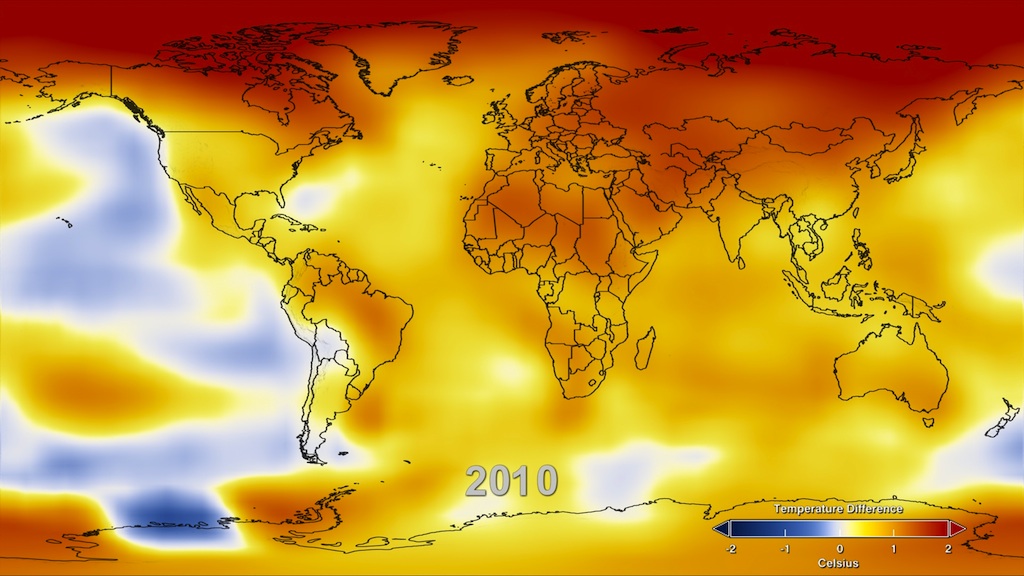
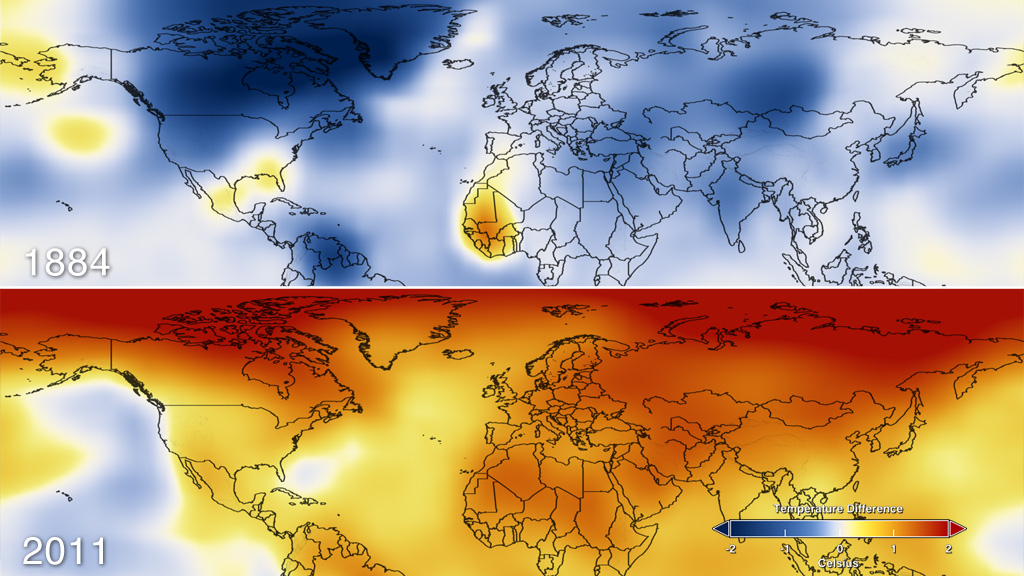
Temperature Rising






Related Story
For More Information
Story Credits
Lead Visualizer/Animator:
Lori Perkins (NASA/GSFC)
Narrator:
Patrick Lynch (Wyle Information Systems)
Producer:
Kayvon Sharghi (USRA)
Lead Scientists:
James Hansen Ph.D. (NASA/GSFC GISS)
Reto A. Ruedy Ph.D. (SIGMA Space Partners, LLC.)
Makiko Sato Ph.D. (Columbia University, Center for Climate Systems Research)
Lead Writer:
Patrick Lynch (Wyle Information Systems)
Lori Perkins (NASA/GSFC)
Narrator:
Patrick Lynch (Wyle Information Systems)
Producer:
Kayvon Sharghi (USRA)
Lead Scientists:
James Hansen Ph.D. (NASA/GSFC GISS)
Reto A. Ruedy Ph.D. (SIGMA Space Partners, LLC.)
Makiko Sato Ph.D. (Columbia University, Center for Climate Systems Research)
Lead Writer:
Patrick Lynch (Wyle Information Systems)
Please give credit for this item to:
NASA's Goddard Space Flight Center
NASA's Goddard Space Flight Center
Short URL to share this page:
https://svs.gsfc.nasa.gov/10901
Keywords:
DLESE >> Narrated
SVS >> App
NASA Science >> Earth
https://svs.gsfc.nasa.gov/10901
Keywords:
DLESE >> Narrated
SVS >> App
NASA Science >> Earth





